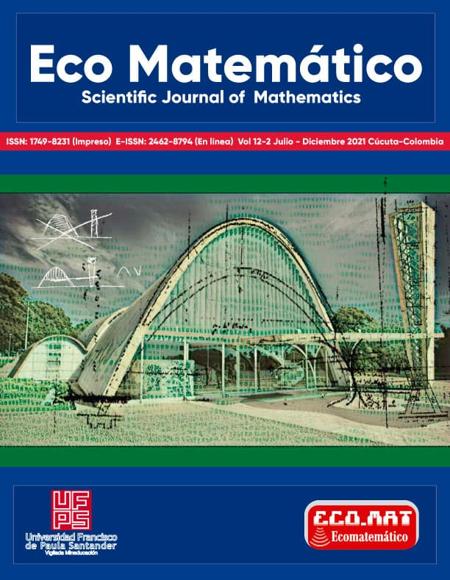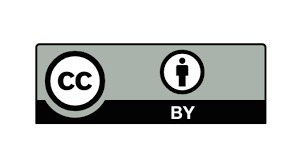Técnicas estadísticas y logro de aprendizaje: revisión bibliográfica
Statistical techniques and learning achievement: literature review
Contenido principal del artículo
El objetivo de este escrito fue describir las diferentes técnicas estadísticas que han sido empleados para comprender o explicar el logro de aprendizaje, en estudiantes en diferentes niveles educativos. Desde el punto de vista teórico se consolidaron las categorías a priori, provenientes de las técnicas estadísticas (Modelos Multinivel, Modelos geoespaciales, Regresión, Clustering, Análisis Descriptivo, Redes Neuronales, Árboles de decisión, Bosques aleatorios, NaiveBayes y Support Vector Machine), así como la conceptualización de Logro de Aprendizaje. El enfoque metodológico para la revisión se hizo a partir del mapeamiento informacional bibliográfico. Entre los resultados se encontraron 50 documentos de diferentes bases de datos (Elsevier (1), Google Scholar (6), IEEE (4), Scielo (2), ScienceDirect (5), Scopus (31), y Springer (1)), que estudian diferentes regiones del mundo (Asia (17), América del sur (13), América del norte (8), Europa (6), África (5), Oceanía (4), Centro América (3), junto con la orientación a explicar (17), comprender (31) o comprender y explicar (2).Adicionalmente, se identificó un conjunto de variables emergentes en los diferentes reportes, entre las que se encuentra, con mayor relevancia, el nivel socioeconómico, género, afectividad, antecedentes y características y posibilidades de los padres.
Descargas
Detalles del artículo
Ariza, J., Saldarriaga, J., Reinoso, K., & Tafur, C. (2021). Tecnologías de la información y la comunicación y desempeño académico en la educación media en Colombia. Lecturas de Economía, 94, 47–86. https://doi.org/10.17533/udea.le.n94a338690 DOI: https://doi.org/10.17533/udea.le.n94a338690
Benito, R., Alegre, M., & Gonzàlez-Balletbò, I. (2014). School Segregation and Its Effects on Educational Equality and Efficiency in 16 OECD Comprehensive School Systems. Comparative Education Review, 58(1), 104–134. https://doi.org/10.1086/672011 DOI: https://doi.org/10.1086/672011
Castrillón, O. D., Sarache, W., & Ruiz-Herrera, S. (2020). Predicción del rendimiento académico por medio de técnicas de inteligencia artificial. Formación universitaria, 13(1), 93–102. https://doi.org/10.4067/s0718-50062020000100093 DOI: https://doi.org/10.4067/S0718-50062020000100093
Chacón-Vargas, É., & Roldán-Villalobos, G. (2021). Factores que inciden sobre el rendimiento académico de los estudiantes de primer ingreso del curso Matemática General del Instituto Tecnológico de Costa Rica. Uniciencia, 35(1), 265–283. https://doi.org/10.15359/ru.35-1.16 DOI: https://doi.org/10.15359/ru.35-1.16
Comisión Económica para América Latina y el Caribe. (2016). Desarrollo Social Inclusivo, una nueva generación de políticas para superar la pobreza y reducir la desigualdad en América Latina y Caribe. Cepal, 304. https://www.cepal.org/es/publicaciones/39100-desarrollo-social-inclusivo-nueva-generacion-politicas-superar-la-pobreza
Contreras, D., Delgadillo, J., & Riveros, G. (2019). Is home overcrowding a significant factor in children’s academic performance? Evidence from Latin America. International Journal of Educational Development, 67, 1–17. https://doi.org/10.1016/j.ijedudev.2019.01.006 DOI: https://doi.org/10.1016/j.ijedudev.2019.01.006
Cornell-Farrow, S., & Garrard, R. (2020). Machine learning classifiers do not improve the prediction of academic risk: Evidence from Australia. Communications in Statistics Case Studies Data Analysis and Applications, 6(2), 228–246. https://doi.org/10.1080/23737484.2020.1752849 DOI: https://doi.org/10.1080/23737484.2020.1752849
Cvencek, D., Fryberg, S., Covarrubias, R., & Meltzoff, A. (2017). Self-Concepts, Self-Esteem, and Academic Achievement of Minority and Majority North American Elementary School Children. Child Development, 89(4), 1099–1109. https://doi.org/10.1111/cdev.12802 DOI: https://doi.org/10.1111/cdev.12802
Dagnew, A. (2017). The relationship between students’ attitudes towards school, values of education, achievement motivation and academic achievement in gondar secondary schools, Ethiopia. Research in Pedagogy, 7(1), 30–42. https://doi.org/10.17810/2015.46 DOI: https://doi.org/10.17810/2015.46
De Agüero Servín, M., Benavides Lara, M. A., Rendón Cazales, J., Pompa Mansilla, M., Hernández-Romo, A. K., Hernández-Martínez, A. M. del P., & Sánchez-Mendiola, M. (2021). Los retos educativos durante la pandemia de COVID-19: segunda encuesta a profesoras y profesores de la UNAM. Revista Digital Universitaria, 22(5). https://doi.org/10.22201/cuaieed.16076079e.2021.22.5.13 DOI: https://doi.org/10.22201/cuaieed.16076079e.2021.22.5.13
Febro, J. (2019). Utilizing feature selection in identifying predicting factors of student retention. International Journal of Advanced Computer Science and Applications, 10(9), 269–274. https://doi.org/10.14569/ijacsa.2019.0100934 DOI: https://doi.org/10.14569/IJACSA.2019.0100934
Froiland, J., & Oros, E. (2014). Intrinsic motivation, perceived competence and classroom engagement as longitudinal predictors of adolescent reading achievement. Educational Psychology, 34(2), 119–132. https://doi.org/10.1080/01443410.2013.822964 DOI: https://doi.org/10.1080/01443410.2013.822964
Gaete-Rivas, D., Olea, M., Meléndez-Illanes, L., Granfeldt, G., Sáez, K., Zapata-lamana, R., & Cigarroa, I. (2021). Hábitos alimentarios y rendimiento académico en escolares chilenos de quinto a octavo año básico. Revista chilena de nutrición, 48(1), 41–50. https://doi.org/10.4067/S0717-75182021000100041 DOI: https://doi.org/10.4067/S0717-75182021000100041
George-Reyes, C. (2020). Pruebas Estandarizadas Y Calidad De La Educacion En México. Universidad y Sociedad Revista científica de la Universidad de Cienfuegos, 12(4), 418–425. http://scielo.sld.cu/pdf/rus/v12n4/2218-3620-rus-12-04-418.pdf
Giannakas, F., Troussas, C., Voyiatzis, I., & Sgouropoulou, C. (2021). A deep learning classification framework for early prediction of team-based academic performance. Applied Soft Computing, 106. https://doi.org/10.1016/j.asoc.2021.107355 DOI: https://doi.org/10.1016/j.asoc.2021.107355
Hasan, R., Palaniappan, S., Rafiez-Abdul, A., Mahmood, S., & Uddin-Sarker, K. (2018). Student Academic Performance Prediction by using Decision Tree Algorithm. 4th International Conference on Computer and Information Sciences (ICCOINS), 1–5. https://doi.org/10.1109/ICCOINS.2018.8510600 DOI: https://doi.org/10.1109/ICCOINS.2018.8510600
Jovanović, J., Saqr, M., Joksimović, S., & Gašević, D. (2021). Students matter the most in learning analytics: The effects of internal and instructional conditions in predicting academic success. Computers and Education, 172(April), 1–13. https://doi.org/10.1016/j.compedu.2021.104251 DOI: https://doi.org/10.1016/j.compedu.2021.104251
Khan, A., & Ghosh, S. (2018). Data mining based analysis to explore the effect of teaching on student performance. Education and Information Technologies, 23(4), 1677–1697. https://doi.org/10.1007/s10639-017-9685-z DOI: https://doi.org/10.1007/s10639-017-9685-z
Kumari, P., Jain, P., & Pamula, R. (2018). An Efficient use of Ensemble Methods to Predict Students Academic Performance. 4th Int’l Conf. on Recent Advances in Information Technology. https://doi.org/10.1109/RAIT.2018.8389056 DOI: https://doi.org/10.1109/RAIT.2018.8389056
Lau, E. T., Sun, L., & Yang, Q. (2019). Modelling, prediction and classification of student academic performance using artificial neural networks. SN Applied Sciences, 1(982). https://doi.org/10.1007/s42452-019-0884-7 DOI: https://doi.org/10.1007/s42452-019-0884-7
Lisboa- Bartholo, T., & Da-Costa, M. (2016). Evidence of a school composition effect in Rio de Janeiro public schools. Ensaio, 24(92), 498–521. https://doi.org/10.1590/S0104-40362016000300001 DOI: https://doi.org/10.1590/S0104-40362016000300001
Maisarah-Samsudin, N., Milleana-Shaharudin, S., Filza-Sulaiman, N., Mohd-Fuad, M., Fareezuan-Zulfikri, M., & Hila-Zainuddin, N. (2021). Modeling student’s academic performance during Covid-19 based on classification in support vector machine. Turkish Journal of Computer and Mathematics Education, 12(5), 1798–1804. https://doi.org/10.17762/turcomat.v12i5.2190 DOI: https://doi.org/10.17762/turcomat.v12i5.2190
Martínez-Mateus, W., & TurriagoHoyos, Á. (2015). Análisis de distribución geográfica y espacial de los resultadosde las Pruebas Saber 11 del Instituto Colombiano para el Fomento de la Educación Superior -ICFES-. 2005-2012. Colombia. Cuadernos Latinoamericanos de Administración, 11(21), 39–50. https://doi.org/10.18270/cuaderlam.v11i21.1618 DOI: https://doi.org/10.18270/cuaderlam.v11i21.1618
Masci, C., Johnes, G., & Agasisti, T. (2018). Student and school performance across countries: A machine learning approach. European Journal of Operational Research, 269(3), 1072–1085. https://doi.org/10.1016/j.ejor.2018.02.031 DOI: https://doi.org/10.1016/j.ejor.2018.02.031
Maulida, J., & Kariyam. (2017). Students academic performance based on behavior. AIP Conference Proceedings, 1911(December 2017). https://doi.org/10.1063/1.5016003 DOI: https://doi.org/10.1063/1.5016003
Mineshita, Y., Kim, H., Chijiki, H., Nanba, T., Shinto, T., Furuhashi, S., Oneda, S., Kuwahara, M., Suwama, A., & Shibata, S. (2021). Screen time duration and timing: effects on obesity, physical activity, dry eyes, and learning ability in elementary school children. BMC Public Health, 21(422). https://doi.org/10.1186/s12889-021-10484-7 DOI: https://doi.org/10.1186/s12889-021-10484-7
Molina, A., Pérez, M., Castaño, N., Bustos, E., Suárez, O., & Sánchez, M. (2012). Mapeamiento informacional bibliográfico en el campo de la enseñanza de las ciencias, contexto y diversidad cultural: el caso del Journal Cultural Studies in Science Education (CSSE). Revista EDUCyT, Extraordin, 1997–222.
Montagud-Mascarell, M. D., & Gandía-Cabedo, J. L. (2014). Virtual learning environment and academic outcomes: Empirical evidence for the teaching of Management Accounting. Revista de Contabilidad-Spanish Accounting Review, 17(2), 108–115. https://doi.org/10.1016/j.rcsar.2013.08.003 DOI: https://doi.org/10.1016/j.rcsar.2013.08.003
Murillo, J., & Carrillo, S. (2021). Incidencia de la Segregación Escolar por Nivel Socioeconómico en el Rendimiento Académico. Un Estudio desde Perú. Archivos analíticos de políticas educativas, 29(49), 3–11. https://doi.org/10.14507/epaa.29.5129 DOI: https://doi.org/10.14507/epaa.29.5129
Navarro, R. E. (2003). EL rendimiento académico: concepto, investigación y desarrollo. REICE - Revista Electrónica Iberoamericana sobre Calidad, Eficacia y Cambio en Educación, 1(2), 1–15. https://doi.org/2152 DOI: https://doi.org/10.15366/reice2003.1.2.007
Orjuela, J. (2014). Análisis del Desempeño Estudiantil en las Pruebas de Estado para Educación Media en Colombia mediante Modelos Jerárquicos Lineales. Ingeniería, 18(2). https://doi.org/10.14483/udistrital.jour.reving.2013.2.a04 DOI: https://doi.org/10.14483/udistrital.jour.reving.2013.2.a04
Peláez-Valencia, L. E., Trefftz, H., & Delgado-González, I. A. (2020). Acreditación Internacional de Carreras de Ingeniería. Educación en Ingeniería, 15(29), 28–33. https://doi.org//dx.doi.org/10.26507/rei.v15n29.1044
Pollak, M., & Parnell, D. (2018). An Interdisciplinary Analysis of Course Meeting Frequency, Attendance and Performance. Journal of the Scholarship of Teaching and Learning, 18(3), 132–152. https://doi.org/10.14434/josotl.v18i3.23752 DOI: https://doi.org/10.14434/josotl.v18i3.23752
Qazdar, A., Er-Raha, B., Cherkaoui, C., & Mammass, D. (2019). A machine learning algorithm framework for predicting students performance: A case study of baccalaureate students in Morocco. Education and Information Technologies, 24(6), 3577–3589. https://doi.org/10.1007/s10639-019-09946-8 DOI: https://doi.org/10.1007/s10639-019-09946-8
Qiu, X., & Wu, S. sheng. (2019). Contextual variables of student math proficiency and their geographic variations in Missouri. Applied Geography, 109, 102040. https://doi.org/10.1016/j.apgeog.2019.102040 DOI: https://doi.org/10.1016/j.apgeog.2019.102040
Rebai, S., Ben Yahia, F., & Essid, H. (2019). A graphically based machine learning approach to predict secondary schools performance in Tunisia. Socio-Economic Planning Sciences, 70(August 2018), 100724. https://doi.org/10.1016/j.seps.2019.06.009 DOI: https://doi.org/10.1016/j.seps.2019.06.009
Rodríguez-De-Souza-Pajuelo, A. A., Tarazona-Luján, A. F., & Reyes-Bossio, M. (2021). Physical activity enjoyment and self-efficacy in school performance of 11-17-year-old students at educational institutions in Lima. Journal of Physical Education and Sport, 21(3), 2183–2189. https://doi.org/10.7752/jpes.2021.s3278 DOI: https://doi.org/10.7752/jpes.2021.s3278
Rodríguez-Hernández, C., Musso, M., Kyndt, E., & Cascallar, E. (2021). Artificial neural networks in academic performance prediction: Systematic implementation and predictor evaluation. Computers and Education: Artificial Intelligence, 2, 100018. https://doi.org/10.1016/j.caeai.2021.100018 DOI: https://doi.org/10.1016/j.caeai.2021.100018
Ruiz, J., & Moya, S. (2020). Evaluación de las competencias y de los resultados de aprendizaje en destrezas y habilidades en los estudiantes de Grado de Podología de la Universidad de Barcelona. Educacion Medica, 21(2), 127–136. https://doi.org/10.1016/j.edumed.2018.08.007 DOI: https://doi.org/10.1016/j.edumed.2018.08.007
Salal, Y., & Abdullaev, S. (2020). Deep Learning based Ensemble Approach to Predict Student Academic Performance: Case Study. En 2020 3rd International Conference on Intelligent Sustainable Systems (ICISS). https://doi.org/10.1109/ICISS49785.2020.9316044 DOI: https://doi.org/10.1109/ICISS49785.2020.9316044
Sbroglio-Rizzotto, J., & Aniceto-França, M. (2020). Does Bullying Affect the School Performance of Brazilian Students? An Analysis Using Pisa 2015. Child Indicators Research, 14, 1027–1053. https://doi.org/10.1007/s12187-020-09790-0 DOI: https://doi.org/10.1007/s12187-020-09790-0
Schuth, E., Köhne, J., & Weinert, S. (2017). The influence of academic vocabulary knowledge on school performance. Learning and Instruction, 49, 157–165. https://doi.org/10.1016/j.learninstruc.2017.01.005 DOI: https://doi.org/10.1016/j.learninstruc.2017.01.005
Shah, M., Kaistha, M., & Gupta, Y. (2019). Student Performance Assessment and Prediction System using Machine Learning. 4th International Conference on Information Systems and Computer Networks, ISCON 2019, 386–390. https://doi.org/10.1109/ISCON47742.2019.9036250 DOI: https://doi.org/10.1109/ISCON47742.2019.9036250
Suárez, O., Hernández-Barbosa, R., Lizarazo-Osorio, J., & Orjuela-Osorio, C. (2021). La evaluación en tiempos de covid -19 : una mirada desde los docentes. Revista Academia y Virtualidad, 14(2), 31–43. https://doi.org/https://doi.org/10.18359/ravi.5365 DOI: https://doi.org/10.18359/ravi.5365
Suárez, O., Molina-Vasquez, R., Orjuela, P., & Lizarazo, J. (2020). Elementos para la construcción de un modelo de tutor virtual. Editorial Fundación Universidad Autónoma de Colombia.
Tapasco-Alzate, O., Ruiz-Ortega, F., Osorio-García, D., & Ramírez-Ramírez, D. (2020). El historial académico de secundaria como factor predictor del rendimiento universitario. Caso de estudio. Revista Colombiana de Educación, 1(81), 147–169. https://doi.org/10.17227/rce.num81-7530 DOI: https://doi.org/10.17227/rce.num81-7530
Urquizo, H. G. (2018). Propuesta de medición y evaluación de Resultados de Aprendizaje según criterios de ABET y ASIIN. Proceedings of the LACCEI international Multi-conference for Engineering, Education and Technology, 2018-July(May). https://doi.org/10.18687/LACCEI2018.1.1.435 DOI: https://doi.org/10.18687/LACCEI2018.1.1.435
Wandera, H., Marivate, V., & Sengeh, M. (2019). Predicting national school performance for policy making in South Africa. 6th International Conference on Soft Computing and Machine Intelligence, ISCMI 2019, 23–28. https://doi.org/10.1109/ISCMI47871.2019.9004323 DOI: https://doi.org/10.1109/ISCMI47871.2019.9004323
Wang, Y., Pei, F., Zhai, F., & Gao, Q. (2019). Academic performance and peer relations among rural-to-urban migrant children in Beijing: Do social identity and self-efficacy matter? Asian Social Work and Policy Review, 13(3), 263–273. https://doi.org/10.1111/aswp.12179 DOI: https://doi.org/10.1111/aswp.12179
Xu, X., Wang, J., Peng, H., & Wu, R. (2019). Prediction of academic performance associated with internet usage behaviors using machine learning algorithms. Computers in Human Behavior, 98(April), 166–173. https://doi.org/10.1016/j.chb.2019.04.015 DOI: https://doi.org/10.1016/j.chb.2019.04.015
Yang, Y., Hooshyar, D., Pedaste, M., Wang, M., Huang, Y.-M., & Lim, H. (2020). Predicting course achievement of university students based on their procrastination behaviour on Moodle. Soft Computing, 24(24), 18777–18793. https://doi.org/10.1007/s00500-020-05110-4 DOI: https://doi.org/10.1007/s00500-020-05110-4
Zhang, D., & Campbell, T. (2014). An examination of the impact of teacher quality and “Opportunity Gap” on student Science Achievement in China. International Journal of Science and Mathematics Education, 13(3), 489–513. https://doi.org/10.1007/s10763-013-9491-z DOI: https://doi.org/10.1007/s10763-013-9491-z







